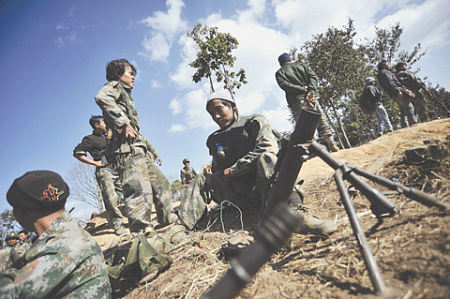
The United States is reportedly considering a dramatic policy shift toward Myanmar, potentially engaging with the military junta it has sanctioned since the 2021 coup. According to sources cited by Reuters, the driving force behind this potential rapprochement is access to Myanmar’s vast and strategic reserves of rare earth elements, a move that would challenge China’s regional dominance and test Washington’s stated commitment to human rights.
The potential pivot stems from a desire to secure an alternative supply chain for rare earth elements, which are critical for everything from consumer electronics to advanced military hardware. For the United States, breaking the global production dominance of its primary geopolitical rival, China, is a top strategic priority. This economic imperative now appears to be prompting a re-evaluation of Washington’s hardline stance against the military regime that overthrew the democratically elected government of Aung San Suu Kyi.
Any American engagement would have to navigate the treacherous landscape of Myanmar’s decades-long civil war. The military, known as the Tatmadaw, faces widespread armed resistance from a coalition of ethnic armed organizations and the People’s Defence Force (PDF), the armed wing of the government-in-exile. This pervasive instability presents a significant security challenge for any potential foreign investment or operations in the country.
According to the report, two main pathways are being considered. The first involves the U.S. negotiating with the ruling junta to broker a peace deal with the Kachin Independence Army (KIA), an ethnic group that controls northern territories rich in rare earth deposits. A second, more audacious plan, would see Washington bypassing the junta entirely and working directly with the KIA. These proposals highlight the complex diplomatic tightrope the U.S. would have to walk.
Beyond the security risks, formidable logistical hurdles remain. Myanmar’s infrastructure is severely underdeveloped, particularly in the rugged, mountainous regions where the minerals are located. The most significant obstacle, however, is likely to be Beijing. China is the Myanmar junta’s primary economic and political patron, investing billions in the country and enjoying privileged access to its resources. Beijing is unlikely to stand by idly as the U.S. moves into its strategic backyard to divert a critical resource supply.
Despite its deep ties to Beijing, the junta’s leader, Min Aung Hlaing, has reportedly made diplomatic overtures, praising what he calls strong American leadership. While the myriad of political, security, and logistical challenges makes a sudden U.S.-Myanmar reconciliation seem improbable, it cannot be completely dismissed. An administration known for bold foreign policy maneuvers could see the strategic prize of Myanmar’s rare earths as worth the considerable risks, potentially redrawing the geopolitical map of Southeast Asia.
